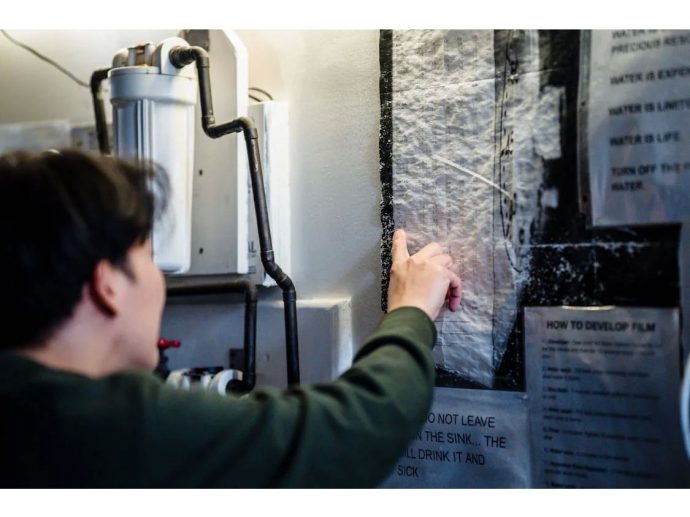Categories more
- Adventures (16)
- Arts / Collectables (14)
- Automotive (36)
- Aviation (10)
- Bath, Body, & Health (73)
- Children (6)
- Cigars / Spirits (30)
- Cuisine (16)
- Design/Architecture (17)
- Electronics (12)
- Entertainment (4)
- Event Planning (3)
- Fashion (43)
- Finance (8)
- Gifts / Misc (6)
- Home Decor (44)
- Jewelry (39)
- Pets (3)
- Philanthropy (1)
- Real Estate (11)
- Services (21)
- Sports / Golf (14)
- Vacation / Travel (60)
- Watches / Pens (14)
- Wines / Vines (24)
- Yachting / Boating (15)
What to Look for in a Quality Water Heater: Your Ultimate Guide
Published
03/20/2025When it comes to investing in a new water heater, the decision is one that can significantly impact your home’s comfort, energy efficiency, and utility costs. A superior quality Water Heater company understands the complexities involved in choosing the right system. This comprehensive guide will walk you through what to look for in a quality water heater, helping you make an informed decision that meets your needs and expectations.
Understanding Your Hot Water Requirements
Before exploring the features of a quality water heater, it's essential to assess your household's specific hot water needs. Consider the following:
- Household Size: The number of occupants in your home will dictate the capacity and type of water heater required. Larger households typically need higher capacity systems to ensure an adequate supply of hot water.
- Usage Patterns: Analyze your daily hot water usage, including peak times. Homes with high simultaneous demands, such as multiple showers running at once, may benefit from tankless or larger tank systems.
- Climate Considerations: Your local climate can influence the type of water heater that will be most efficient. For instance, heat pumps work best in moderate climates, while solar heaters excel in sunny regions.
- Energy Source: Determine which energy sources are available in your area—electricity, natural gas, propane, or solar—and consider the cost and efficiency of each.
Key Features of a Quality Water Heater
Once you have a clear understanding of your needs, it’s time to dive into what makes a water heater truly stand out. Here are the critical features to consider:
1. Energy Efficiency
One of the most important aspects of a quality water heater is its energy efficiency. Look for units with high Energy Factor (EF) ratings, which indicate better efficiency. Energy-efficient models not only reduce your carbon footprint but also lead to significant savings on your energy bills over time.
- Tankless Water Heaters: These systems heat water on demand, eliminating standby heat loss associated with traditional tank heaters, providing higher efficiency.
- Heat Pump Water Heaters: These use ambient air to heat water, offering substantial energy savings compared to conventional electric heaters.
- Solar Water Heaters: Although dependent on sunlight, these systems offer the lowest operating costs and are highly sustainable.
2. Capacity and Size
Choosing the right capacity is crucial to ensure your household's hot water needs are met. Water heaters come in various sizes, and it’s important to select one that can handle your peak demand without wasting energy.
- Tank Water Heaters: Available in various capacities, typically ranging from 20 to 80 gallons. Choose a size that matches your household size and usage patterns.
- Tankless Water Heaters: Measure capacity in gallons per minute (GPM). Ensure the unit can handle your home’s simultaneous hot water requirements.
3. Reliability and Durability
A quality water heater should offer long-lasting performance and reliability. Consider the following:
- Material Quality: Stainless steel tanks or those with corrosion-resistant linings tend to last longer.
- Brand Reputation: Opt for reputable brands like Water Heater known for quality and reliability. Customer reviews and ratings can provide insights into the product’s performance over time.
4. Warranty and Support
A comprehensive warranty is a good indicator of a quality water heater. It reflects the manufacturer's confidence in their product and provides peace of mind. Check the duration and coverage of the warranty, and consider the availability of customer service and support.
5. Installation and Maintenance
Consider the ease of installation and the maintenance requirements of the water heater:
- Professional Installation: Ensure that the installation is performed by certified professionals to guarantee safety and efficiency.
- Maintenance Needs: Some systems require regular maintenance to perform optimally. Understand the maintenance schedule and whether you can handle it yourself or need professional assistance.
6. Safety Features
A high-quality water heater should come equipped with essential safety features to protect your home and family:
- Temperature Controls: Adjustable thermostats allow you to set and maintain the desired water temperature, preventing scalding and conserving energy.
- Pressure Relief Valve: This essential safety feature prevents excessive pressure build-up in the tank, reducing the risk of explosions.
7. Noise Levels
For some homeowners, the noise level of a water heater can be a significant factor. Look for models that operate quietly, especially if the unit is located near living spaces.
Making Your Decision
After evaluating what to look for in a quality water heater based on the above factors, you are better equipped to choose a system that aligns with your household’s needs, budget, and long-term goals. Whether you opt for the innovation of a tankless system or the sustainability of a solar setup, ensure that your choice delivers efficiency, reliability, and comfort.
In conclusion, selecting a quality water heater involves a careful assessment of your household’s hot water needs, energy efficiency, capacity, and additional features like safety and ease of maintenance. By choosing a reputable brand like Water Heater, you are investing in a system that promises durability and performance, ensuring comfort and convenience for years to come.















